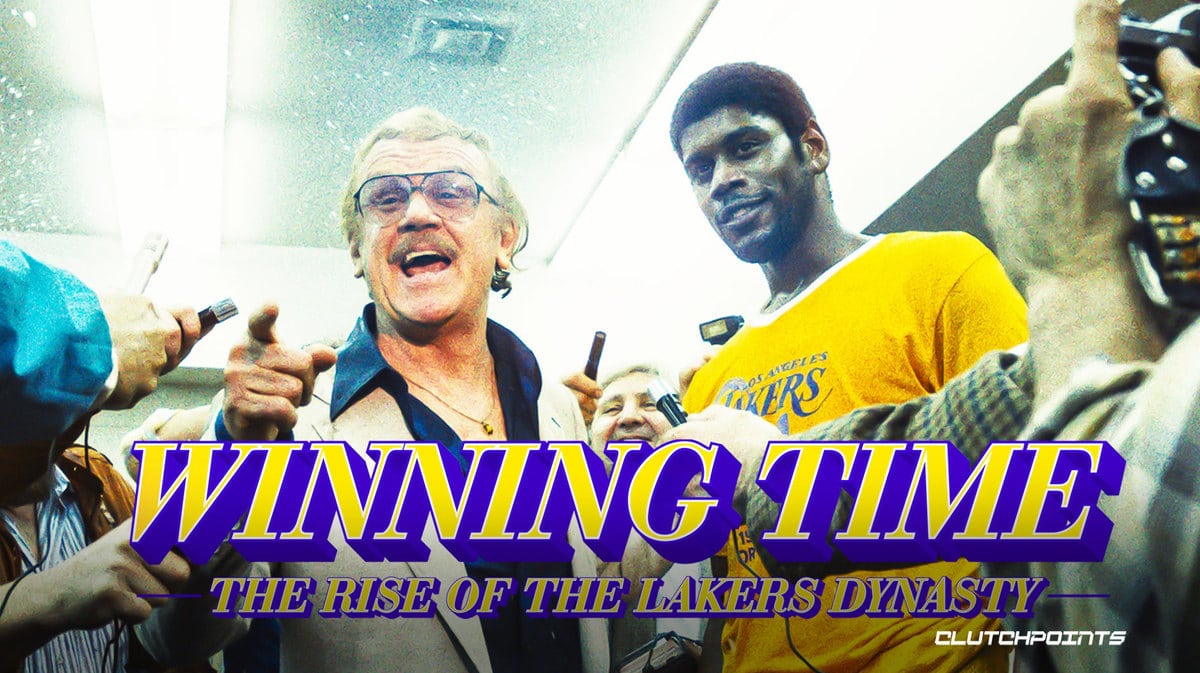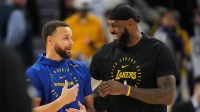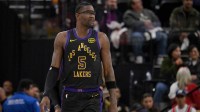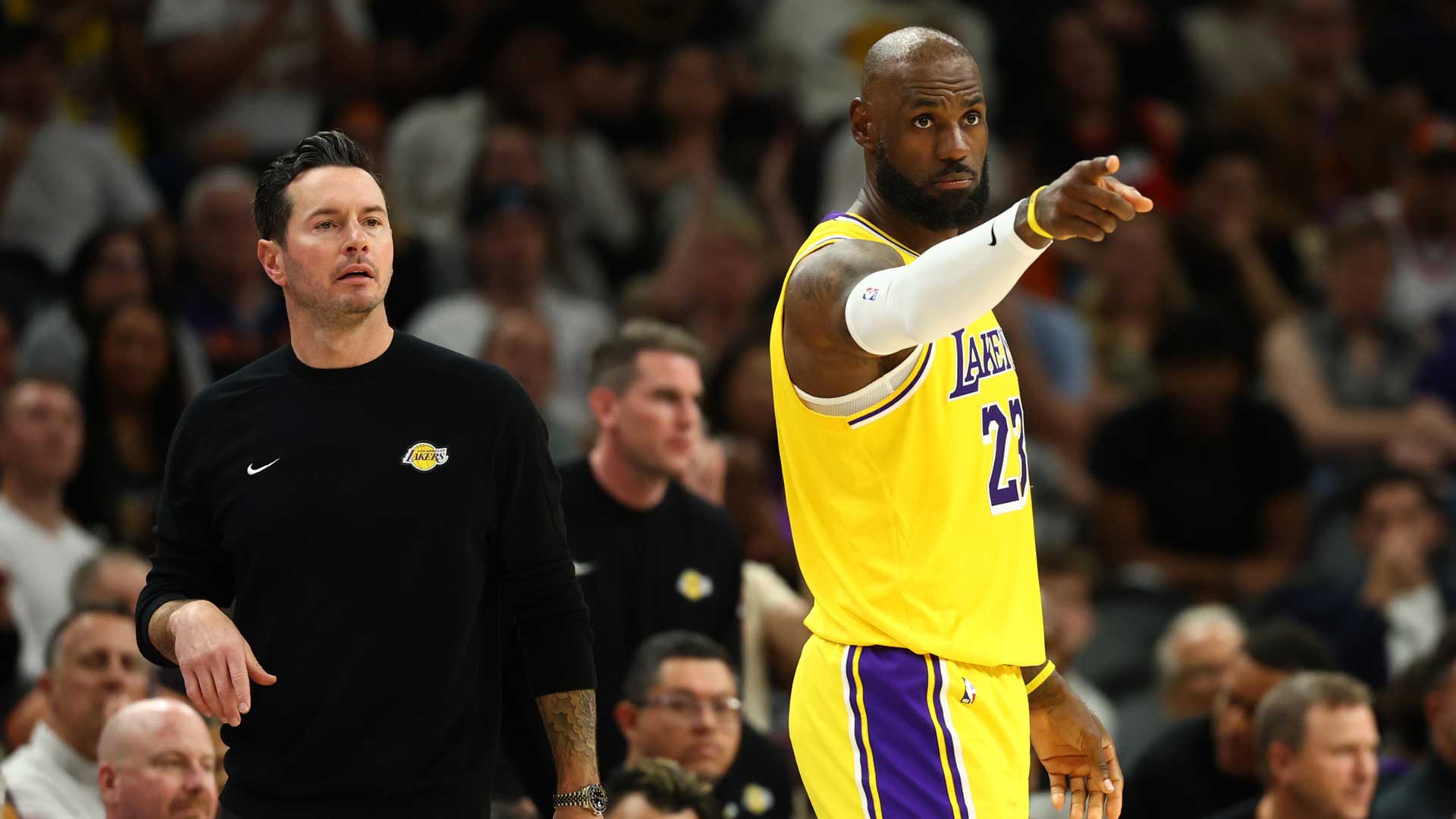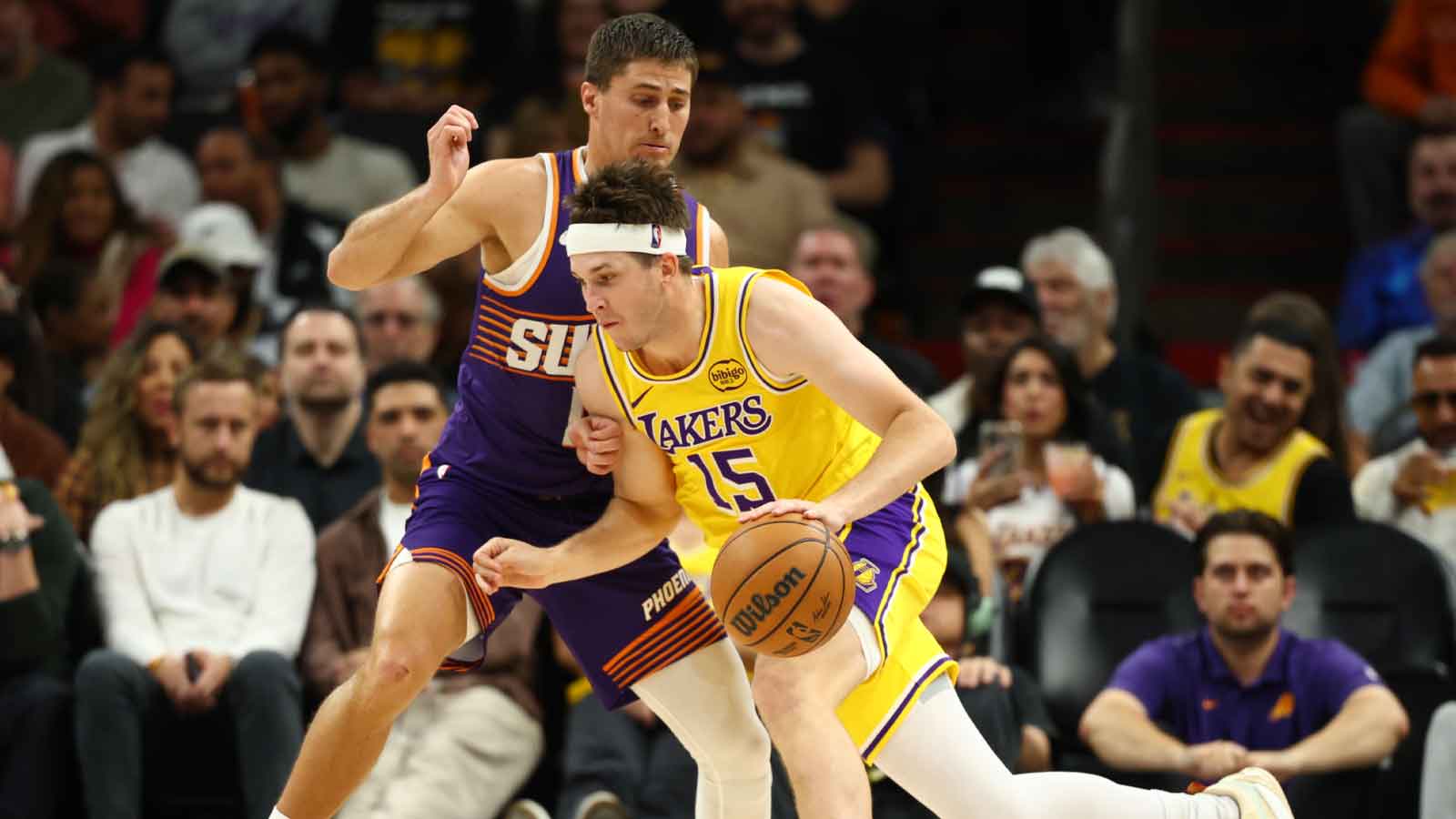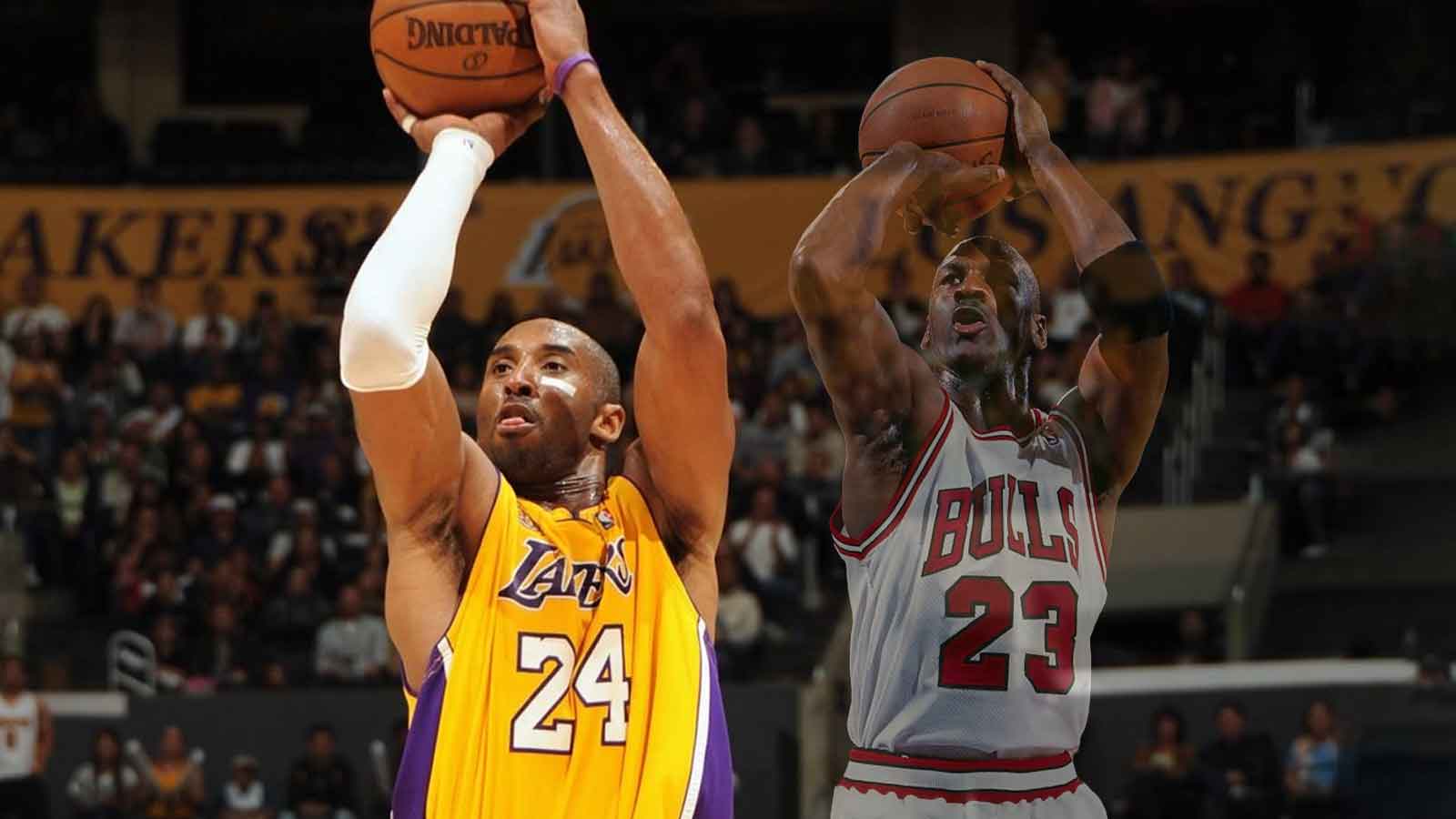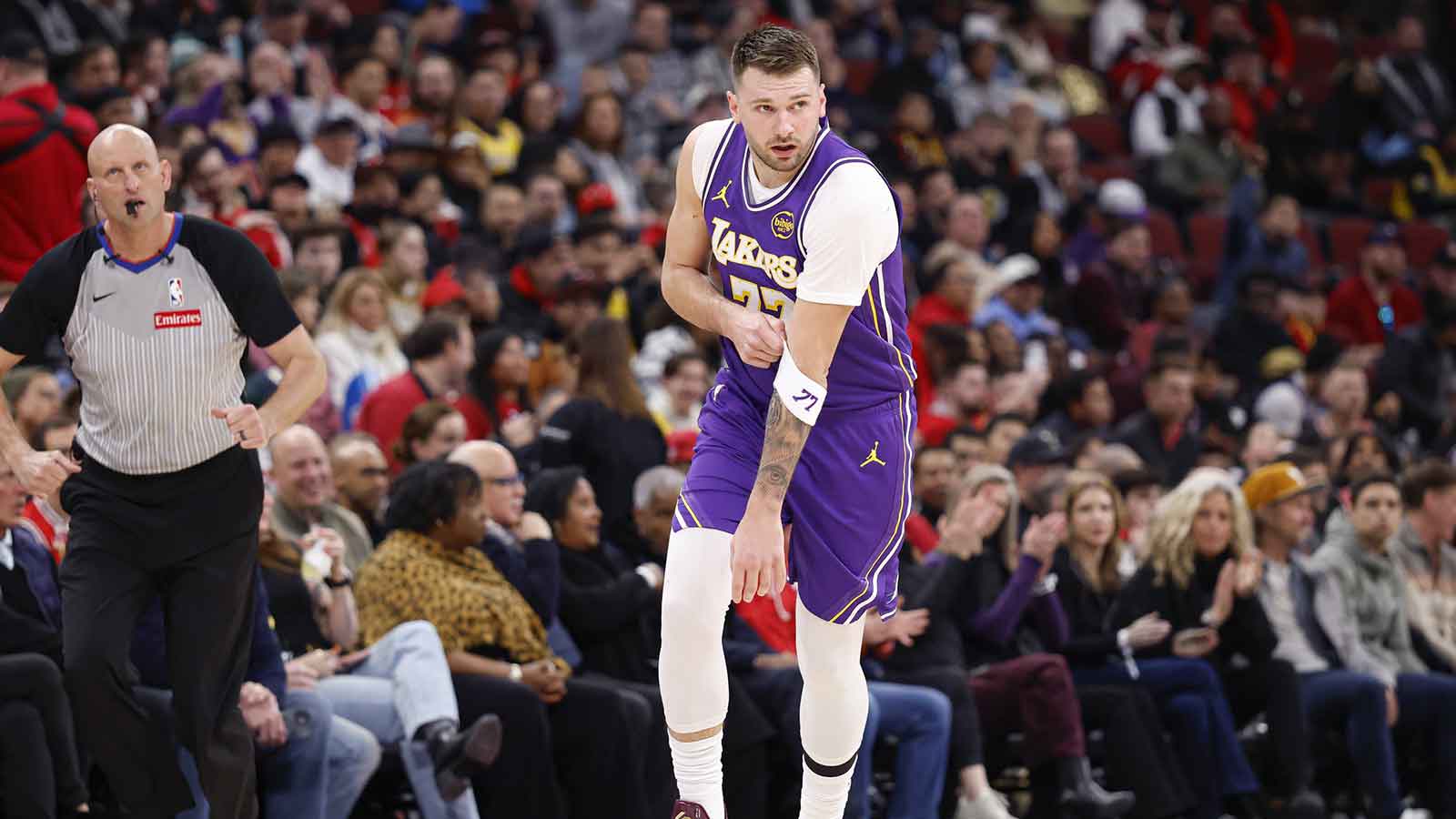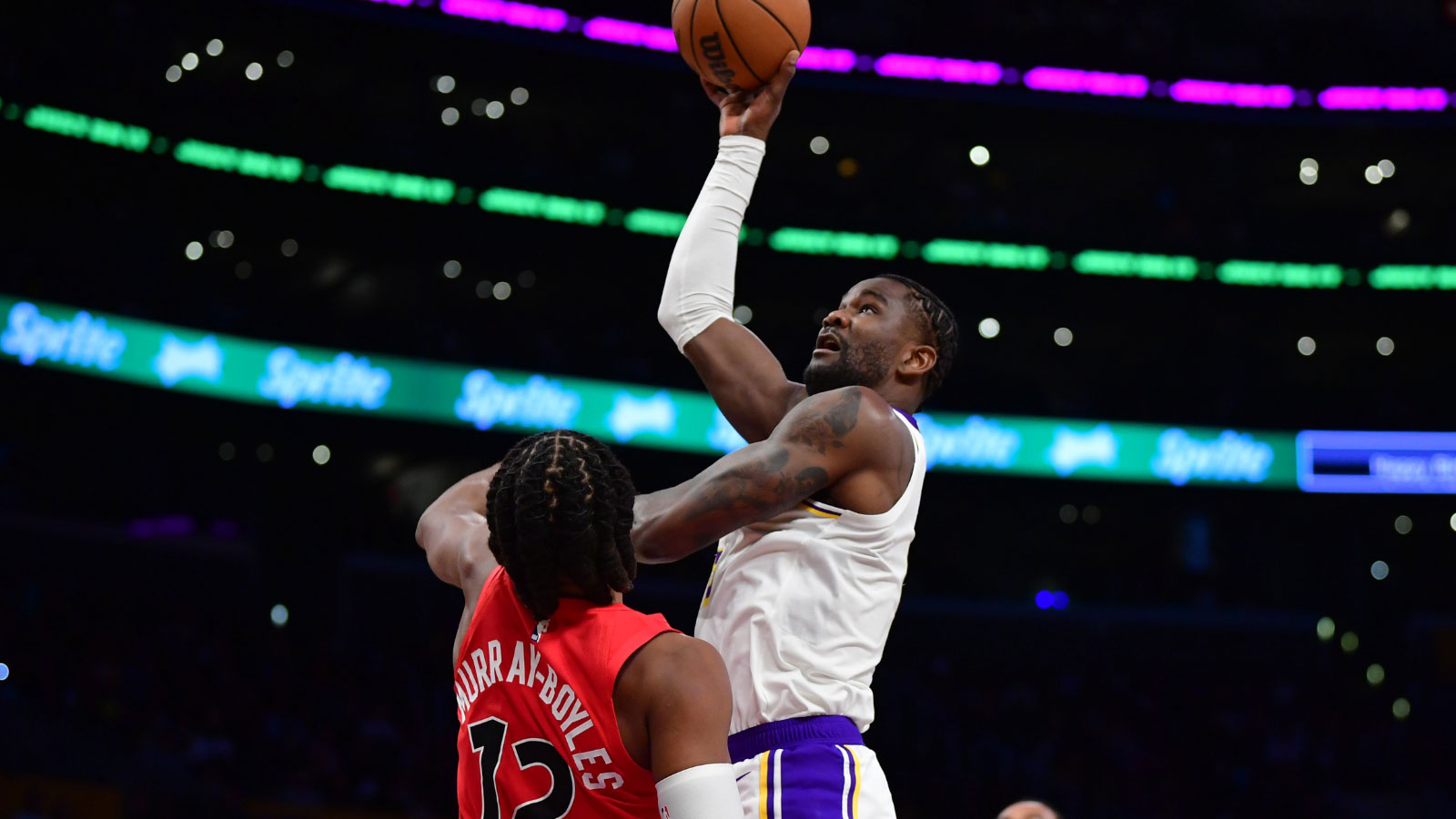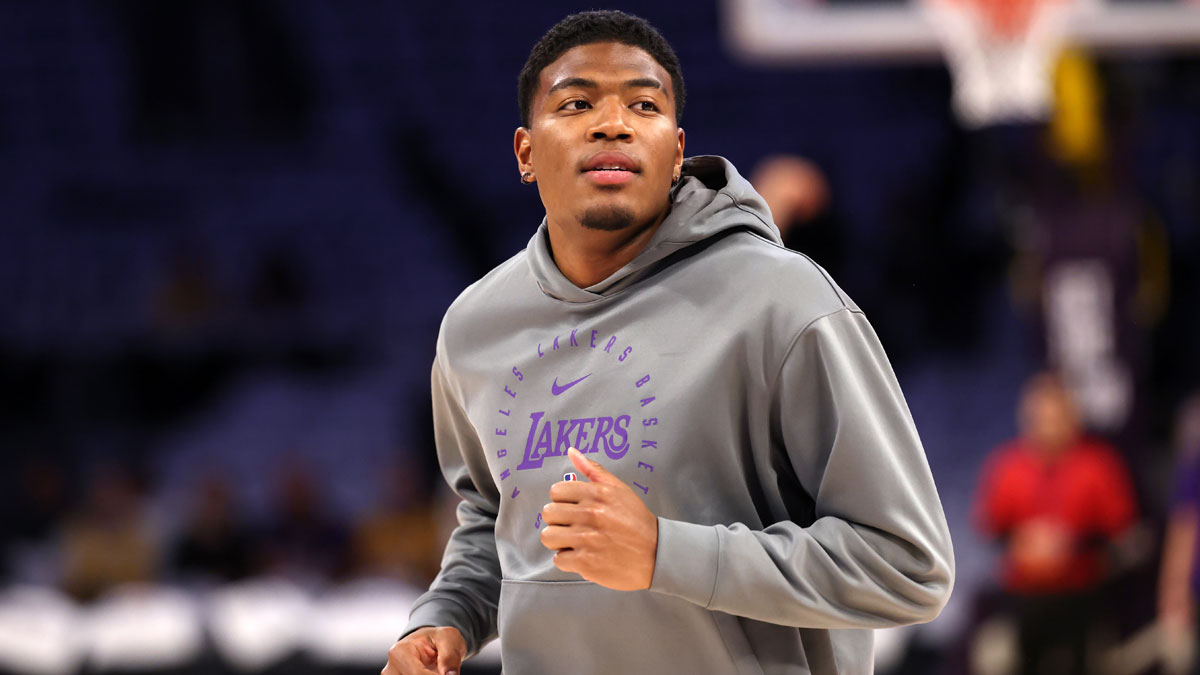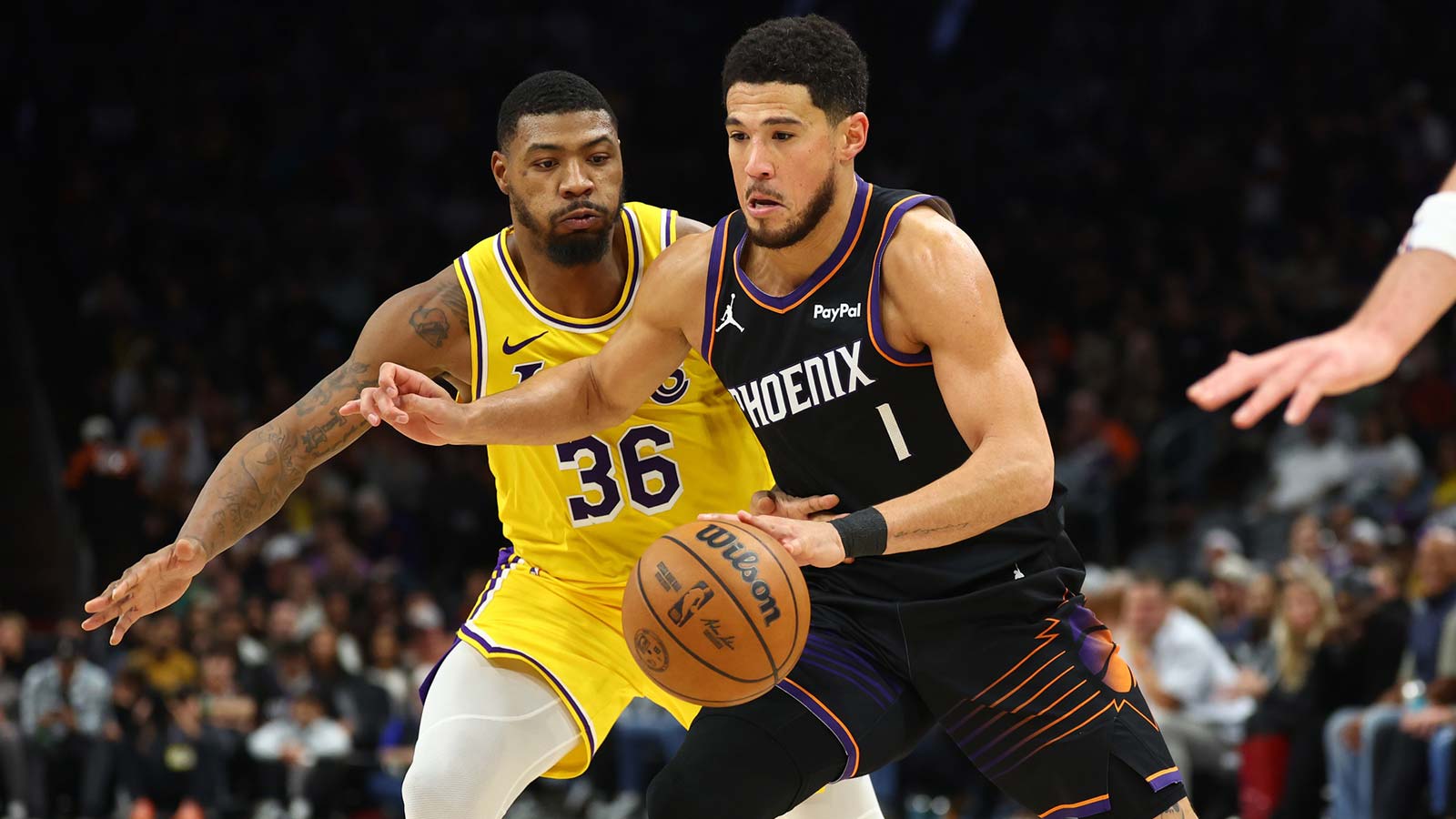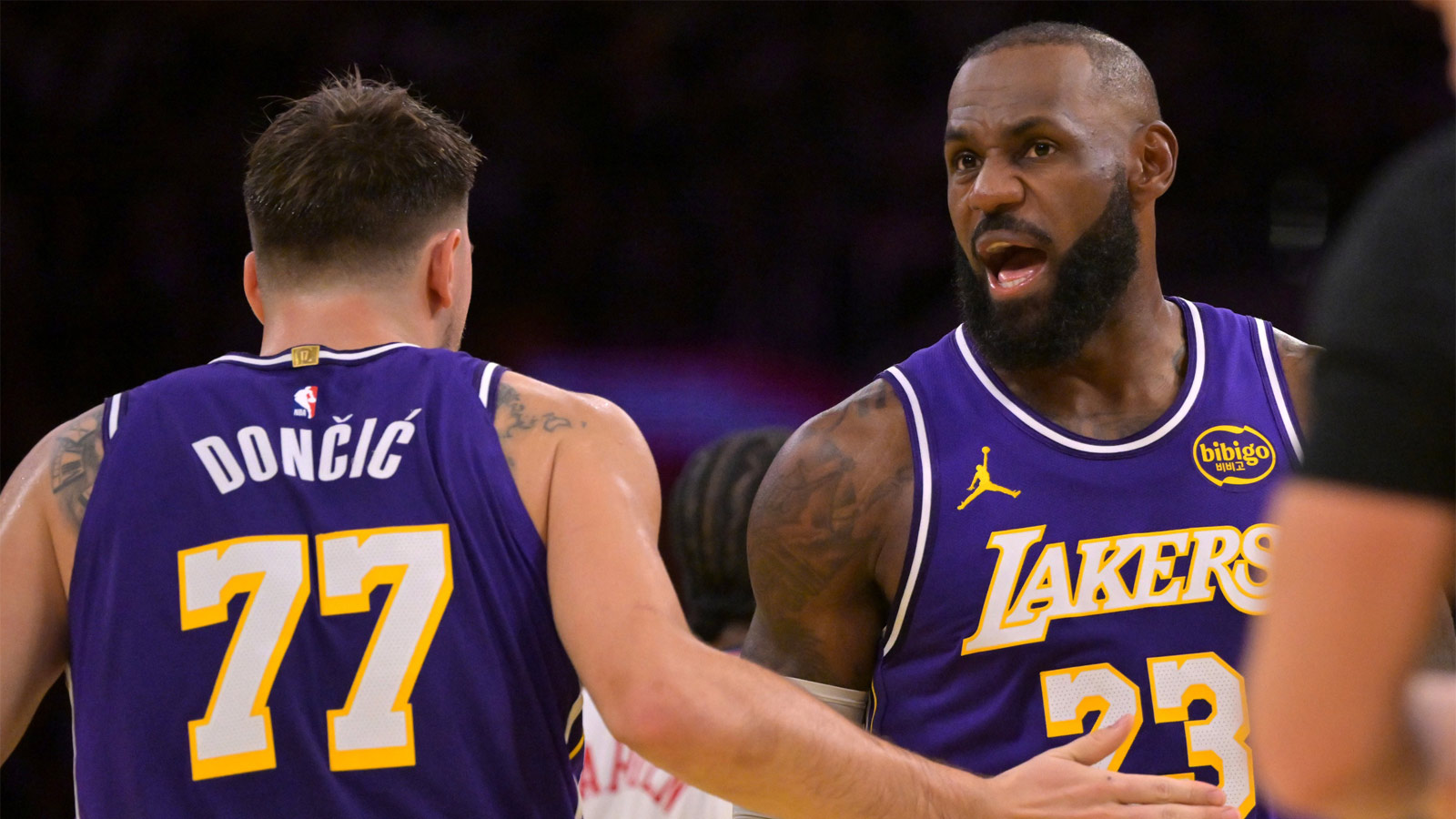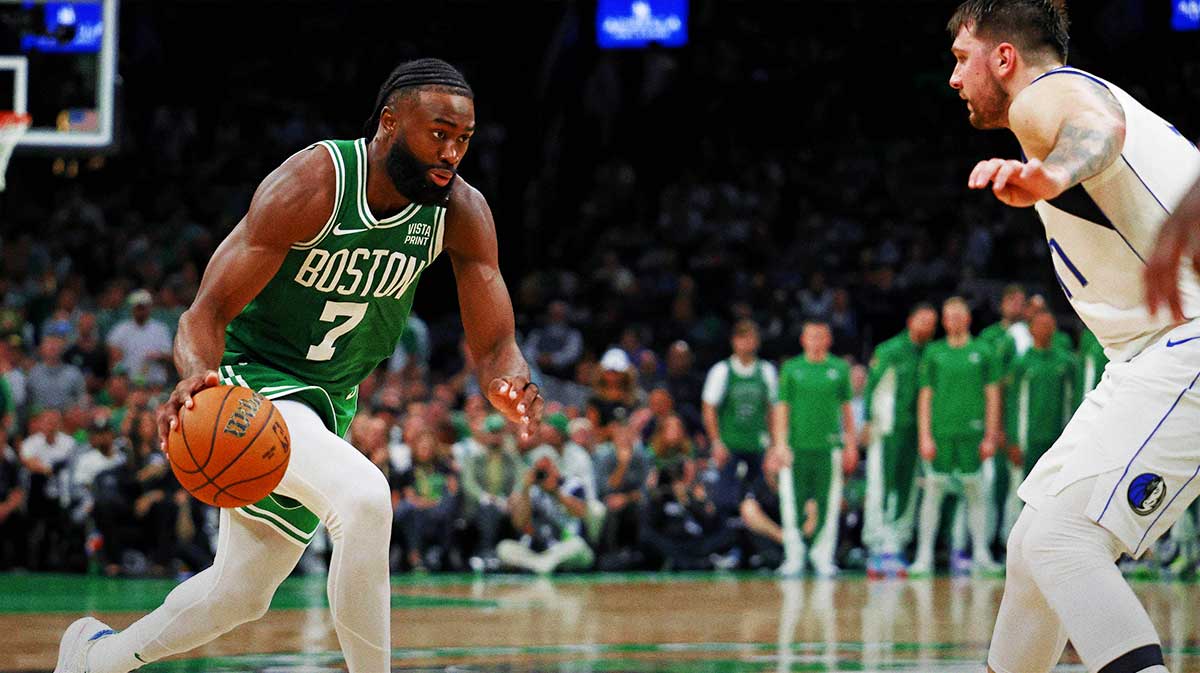The creative team behind Season 2 of “Winning Time: Rise of the Lakers Dynasty” compiled a companion guide outlining the historical accuracy of each episode, which they provided to ClutchPoints' Lakers reporter.
“We felt it important to show our work out of respect for the many living characters depicted,” the creators wrote. (Episodes begin with a disclaimer: “This series is a dramatization of certain facts and events. Some of the names have been changed and some of the events and characters have been fictionalized, modified or composited for dramatic purposes.”)
Episode 5, “The Hamburger Hamlet”, focuses on the fallout from Magic Johnson’s public trade request, culminating in the firing of Paul Westhead and a chaotic (and very real) press conference that led to Pat Riley becoming the Lakers’ head coach, and the Lakers en route to the NBA Finals. Boston Celtics fans originate the first “Beat L.A.” chant even as their team is eliminated by the Philadelphia 76ers in the conference finals (true).
Here's what goes down in Episode 6, “Beat L.A.”, and how it represents what actually happened. Spoilers aplenty.
(Related: Stay tuned for my interview with prolific NBA trainer Idan Ravin, who serves as the basketball consultant on the series.)
“Beat L.A.” opens in the Lakers’ locker room after their Game 6 victory over the Sixers to secure the 1982 NBA championship. Coming off their 1981 first-round demise — and a Celtics title — Dr. Jerry Buss essentially demanded a ring. He got it, though not without multiple television episodes worth of drama.
Fast forward to Philly, 1983. The Lakers are vying to become the first team since the late-'60s Celtics to repeat. Minutes before Game 1, the Lakers seem a bit too relaxed, requiring a reminder from Riley to respect their opponent (the '83 “Fo, fo, fo” 76ers are among the finest teams in history). Sure enough, the Lakers get blown out in Game 1 (though it was actually a six-point game) as Moses Malone dominates Kareem Abdul-Jabbar. In Game 2, Andrew Toney schools a compromised Norm Nixon (in real life, Nixon played through a separated shoulder). We see Moses lead the Sixers to a 3-0 lead at The Forum, then the Sixers and Julius Erving dunk on the Lakers to finish the sweep (true).
For the series, Malone averaged 25.8 points and 18.0 rebounds on 66% shooting, while Abdul-Jabbar put up 23.5 points and 7.5 boards per game. Magic averaged 19.0 points, 7.8 rebounds, and 12.5 assists but shot just 40.3% from the field.
In the episode, Buss forlornly smokes a cigarette as The Forum closes up shop. One year removed from a title, the nature of the sweep causes the Lakers' brass to “reassess” their aging club, as we see depicted in a heated meeting in Buss’ office. Jerry West mentions that star rookie James Worthy broke his leg right before the playoffs (true), although he agrees the roster needs fresh blood.
Back in Boston, a giddy Red Auerbach finds Larry Bird getting up shots at The Garden (“Winning Time” loves an empty-arena conversation). Auerbach believes the Lakers, especially Kareem, are washed, and Magic can't lead like Bird.
Auerbach: “It’s our decade. They had their minute. Now it’s over.”
Bird: “Hope not. Not ‘til I get my shot.”
The scene is fictional, but the sentiment is fact.
“It further irked [Bird] that Los Angeles would have been the opponent in the Finals had the Celtics advanced,” Bird co-wrote in his memoir, When the Game was Ours. “It was (and had been since his arrival in the NBA) his fervent wish to battle Magic and LA head-to-head for the title.”
Three months later, Kareem, a free agent at 36, meets with his manager, Tom Collins (played by Jeanie Buss’ new husband, Jay Mohr) — and yes, Tom Collins was his real name. Kareem is perplexed by his lack of suitors, especially his hometown New York Knicks. In real life, Kareem garnered interest from the Atlanta Hawks, Chicago Bulls, and Indiana Pacers. He eventually re-signed in Los Angeles for $1.5 million per year. He wanted $2 million.
West shrewdly proposes trading Nixon to the San Diego Clippers — boasting a new owner, Donald Sterling, looking to make a splash — for backup center Swen Nater and a rookie named Byron Scott, who he envisions as a transition partner for Magic (it’s nice when the show captures West’s basketball acumen). West gets Magic's two cents on the deal and plants the seed that, sooner rather than later, the team has to become Magic's. It’s unclear if Magic, with whom Nixon reluctantly shared ball-handling duties, was consulted on the move, although he was cool with Nixon getting dealt in 1981 — per Westhead’s memoir — a move that was thwarted by Westhead, as covered earlier in the season.
Nixon is informed on his 28th birthday that he has been traded (it was the day before in actuality, Oct. 10, 1983). He was, indeed, displeased about the news, despite his clashes with Magic. “Next time I see you, I’m gonna bust your ass,” Nixon toasts at his farewell/birthday party at The Forum Club. A similar function really did occur at a Beverly Hills restaurant. (Kyle Kuzma's farewell dinner was a bit more casual.) Three games into the regular season, Nixon (25 points) led the Clippers to an upset 110-106 win over the Lakers, as accurately shown in the episode.
We also see Magic successfully propose to Cookie. He did actually propose more than once, first in 1985, but the show altered the timing.
Dr. Buss’ girlfriend, Honey, angrily leaves him after discovering that he wasn’t legally divorced from his ex-wife. (Honey is a composite, but two of Buss’ exes really did sue him for bigamy.) Moments later, the house phone rings, presumably to inform Buss that Kareem’s Bel-Air mansion burned down in an electrical fire. Abdul-Jabbar did really lose thousands of treasured jazz LPs and Qu’rans, among other possessions. In reality, the incident happened in January, not November.
The show portrays the immediate outpouring of love and gifts Kareem received from fans in the wake of the fire. Abdul-Jabbar arrives at The Forum to find a horde of fans offering vinyls. That's a somewhat dramatized scene, but the infamously aloof Abdul-Jabbar was genuinely touched. He credited the fan response for forever softening his feelings toward the public. In his memoir, he compared the moment to the heartwarming ending to “It’s a Wonderful Life.”
“Kareem was showered with a lot of love and a lot of concern for the first time,” Riley later said. “I don’t think he had ever seen that before.”
Kareem then delivers an uncharacteristically stirring speech in the locker room to jumpstart the Lakers' season. This wasn't exactly how things played out: the Lakers were 26-16 at the time of the fire, and they actually lost their next game, to the Celtics, by 15.
The feel-good scene depicting Kareem breaking the all-time scoring record later that season — featuring a celebratory swell of fans, teammates, family members, media, tears, hugs, and high-fives (not unlike LeBron James' epic night in February) was accurately recreated, down to the skyhook.
“Beat L.A.” ends with the Lakers and Celtics on the precipice of their long-awaited 1984 NBA Finals matchup. It's on.

